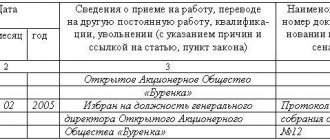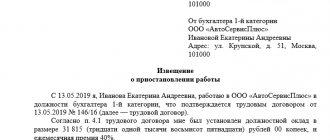The lie detector in the Ministry of Internal Affairs is no longer news to anyone. Thanks to the policy pursued by the management of the department, taking a polygraph has become mandatory when applying for a job in internal affairs bodies (OVD) or when receiving a promotion at work and moving to a new position
Lies arise where coercion appears. K. A. Fedin
Why do you need to take a polygraph at the Ministry of Internal Affairs?
In this way, the leadership of the Ministry of Internal Affairs decided to improve the quality of personnel and improve its image in the eyes of ordinary citizens.
The historic decision belongs to the head of the department, Vladimir Kolokoltsev. It was he who made changes to the order “On some issues of appointment to positions in the internal affairs bodies of the Russian Federation and dismissal of employees from service” in 2013.
Thus, the Russian department has actually adopted a technique that has long been used in foreign countries.
We also recommend that you read the article “How to pass a polygraph in the FSB”
What questions are asked to the applicant?
First, the applicant for the position is asked neutral questions. They are needed to individually configure the device. Let's look at common questions:
- Information included in the resume.
- Information provided by the applicant about himself.
- History of thefts.
- Contacts with competing companies.
- Having bad habits: smoking, addiction to alcohol or drugs.
- Having a criminal record.
- Existence of debts to credit institutions.
- Compliance of the applicant's skills with the position.
- Availability of special education.
- Level of interest in work.
- Negative intentions regarding the organization.
- Having a gambling addiction.
The questionnaire is compiled individually and depends on the specific position. The list of questions should be compiled by a specialist. This is due to the fact that the questions should complement each other. Correct formulation is essential. All questions must be posed in such a way that they can be answered “yes” or “no”.
IMPORTANT! The applicant has the right to refuse to answer the question posed. Typically this involves personal or tactless questioning.
What does this give the department?
Thanks to the use of high-precision modern equipment and well-developed techniques, taking a polygraph at the Ministry of Internal Affairs has become a truly effective tool. It aims to identify personnel who, for one or another indicator, do not meet the department’s requirements .
The results of polygraph testing are not only used to identify unsuitable candidates, but also to develop new methods and improve them. Based on the collected data, the department’s own statistics are compiled. Personal testing data is used to form a psychological portrait of the personality of an employee of the Ministry of Internal Affairs .
Recommendations for the applicant
The applicant is advised to prepare for the test. The following recommendations exist:
- The procedure will require patience and concentration. Before passing it, it is recommended to get a good night's sleep and rest.
- Let's take light sedatives. This is necessary due to the fact that a polygraph test is a rather nerve-wracking event.
- A person must understand that he can refuse to answer a question at any time. However, it must be borne in mind that such behavior may be interpreted not in favor of the applicant.
FOR YOUR INFORMATION! The polygraph does not give 100% accurate results. For this reason, the test results are not used in court as evidence, but they may be attached to the case. The employer also needs to keep in mind that refusal to undergo testing does not always mean that the applicant is lying.
General principle of operation of the polygraph
Modern polygraphs, which are used for testing, have high reliability rates. That is, if the person being tested gives a false answer during the process or feels nervous, the polygraph operator will definitely understand this. The equipment reads many parameters of the body, including breathing, pulse, muscle contractions, skin resistance, etc.
Of course, such equipment should only be operated by a competent specialist who can correctly interpret the test results and understand the reason for the body’s reaction to a particular question. This specialist is a polygraph examiner.
Physiology
Now let's move on to blood pressure, which also needs to be controlled.
There are two ways to do this:
- contraction of the sphincter muscles,
- biting the tip of the tongue.
Just remember that you need to do this without any additional facial expressions that could give you away.
Also, control your breathing - under normal conditions, we inhale no more than once every 2-4 seconds. And it’s better not to delay it - there is a risk of increased heart rate.
Lie detector in the Ministry of Internal Affairs - testing stages
- In order to explain the purpose and procedure of work, an introductory briefing is conducted with the tested candidate.
- Then he is given an agreement to conduct the test to sign.
- An explanatory conversation is held with the subject, after which the operator attaches the necessary sensors to the candidate’s body, and the testing enters the active phase.
- First of all, the polygraph operator needs to calibrate the equipment. This is done in order to increase the level of confidence in the answers to the main questions. At this stage, the polygraph adapts to the individual characteristics of the test subject’s body.
- Especially for subjects, we draw your attention to the fact that all data is recorded from the moment the equipment is connected until it is disconnected. That is, intermediate conversations or simply questions that do not require answers can also be used as results of a polygraph test.
- In the main part, questions are asked according to a predetermined list.
- You may be interviewed in the middle of the test and at the end of the test.
Behave naturally and at ease and you will pass the polygraph test at the Ministry of Internal Affairs without any problems.
It is much easier to deceive others than not to deceive yourself. Marcel Jouandeau
Passage procedure
The algorithm for testing an employee with a polygraph is as follows:
- Conducting an introductory conversation and introductory briefing. At the same time, the employee is asked about their readiness to undergo the procedure, its expected duration and possible questions.
- Signing the declaration of passing the test. This document confirms the voluntary participation of the employee in the procedure.
- Conducting an explanatory conversation. During the test, all questions that will be asked during testing are discussed and clarified.
- Technical preparation for testing. At this stage, the specialist conducting the procedure (polygraph examiner) attaches the necessary sensors to the body of the person being tested. After this, he calibrates the polygraph, since in some cases it is necessary to adjust it to the individual characteristics of the body.
- The actual testing. At this stage, the subject is asked questions according to a pre-approved list. If any answers cause doubts or ambiguities in the expert, they can be asked again during the procedure, and more than once.
- Conducting a test conversation. It is usually carried out in the middle or at the end of testing. During this conversation, some questions asked during testing may be discussed or clarified.
- Obtaining and processing results. In accordance with the signed declaration, these results can only be transferred to the customer and are strictly confidential.
During testing, only two people can be present - a polygraph examiner and the employee being tested.
In case of verification of a minor, parents or guardians are also allowed. The duration of the procedure can be from half an hour to 3-4 hours. It all depends on the number of questions and other individual characteristics of the test.
Polygraph in the Ministry of Internal Affairs: a list of sample questions asked
Before taking a polygraph test at the Ministry of Internal Affairs, you can familiarize yourself with the approximate list of questions given below.
The list of questions is approximate and does not cover all topics; the wording may also be different. The original list is not subject to publicity in order to prevent an inadequate reaction of the test subjects’ body to simple questions. After all, knowing the questions in advance, the candidate can “cheat” himself before testing, which will work against him, worsening the test results.
So, a list of approximate questions for a polygraph at the Ministry of Internal Affairs.
- Have you ever killed an animal?
- Do you like being humiliated?
- Are you always right?
- Do you love your mother?
- Do you enjoy humiliating others?
- Do you love weapons?
- Would you like to participate in combat?
- Do you like specials? operations?
- Have you ever kept a military secret?
- Have you used drugs? If yes, how many times and for how long?
- Have you used smoking mixtures (spice, for example)? Have you ever smoked weed? If yes, how many times and for how long?
- Have you used any psychotropic substances? If yes, how many times and for how long?
- Did you drink alcohol? If yes, when was the last time? Do you drink alcohol often?
- Have you driven a vehicle while intoxicated?
- Have you committed thefts?
- Have you tried energy drinks?
- Have you ever gambled for money after you turned 18?
- Etc.
Knowledge and ability to “correctly” answer these and other similar questions will give you a chance to successfully pass a lie detector test and not get burned while doing so. The slightest suspicion by a polygraph examiner of your lies, which the polygraph will detect, can lead to an o-word on the candidate’s card for the position of an employee of the Ministry of Internal Affairs.
The topics of the questions may be repeated, slightly modifying the meaning of the event, for example:
- Have you driven while intoxicated in the last 5 years?
- Have you ever driven while intoxicated in your life?
- Do you condemn those who drive while intoxicated?
The point of such questions, scattered randomly among others, is to reduce the likelihood of false positives to the main question on a given topic.
Let's turn on artistry
Of course, the best option is high-quality acting according to the Stanislavsky system. The trick is to become so immersed in your lies that you believe them yourself.
Agree, if you believe in a fiction, then for you it is no longer a lie, which means your body will perceive this information as true, and therefore will give the specialist conducting the test the corresponding result.
It goes without saying that for this you simply need to think through all aspects of your deception in advance, so much so that you can discuss this topic for a very long time without inventing the plot along the way, but as if remembering it:
- Add little things into your story, like what the weather was like, what you smelled - just don't overdo it and don't distract from the main topic. If you have already decided to deceive the polygraph with the help of acting, then emotions will definitely not be superfluous, they just need to be changed, turning fear into anger, and repentance into humility.
How do they take a polygraph at the Ministry of Internal Affairs?
The testing procedure itself can take several hours.
Before taking a polygraph test, candidates should under no circumstances take any medications that could affect the test results.
Modern equipment has a very high test reliability rate (it tends to 100%), it cannot be deceived in any way, even with medication.
May history be afraid of any lie, may it not be afraid of any truth. Marcus Tullius Cicero
How to pass a polygraph when applying for a job: tips for job seekers
As a rule, the need to take a polygraph test frightens applicants. If a person does not hide a criminal past, that is, he is clean before the law, he should not be afraid of verification.
The emotional state will not affect the result, since specialists will set up the device as necessary.
Advice to applicants will be as follows:
- you need to get enough sleep the night before the procedure;
- do not drink alcohol, drugs or sedatives;
- the test taker must calm down and mentally tune in to the test;
- the potential employee must answer honestly;
- You shouldn’t analyze the questions, but say the first thing that comes to mind, etc.
Polygraph for CPD: If you don’t pass the test at the Ministry of Internal Affairs, what should you do?
Let's imagine a situation: you did not pass the test and received an explanation in the polygraph results for the CPP: “ Not recommended
.” What to do?
Strict rules for professional selection for the Ministry of Internal Affairs and the validity period of the CPD conclusion
will not allow you to retry the device for service earlier than
6 months
after receiving the test verdict.
After passing this period, you can go for re-testing on a polygraph and try to get the “ Recommended
” conclusion based on the results of the CPT.
If you cannot wait 6 months, then you will have to look for a job in another specialty. Without successfully passing a polygraph test, the authorities will not hire you.
Article on the topic: CPD in the Ministry of Internal Affairs tests (with answers)
Actions to take if testing fails
The conclusion after testing is sent to the customer of the test within 3 days from the date of inspection.
It comes in 2 types:
- recommended for joining the police;
- not recommended.
A negative result closes the possibility of joining the police. All other tests of the applicant will not be significant. Only after 6 months it is possible to repeat the testing procedure. If successful, the person may be accepted into the police force.
Is it possible to deceive the device?
To immediately figure out whether it is possible to deceive a lie detector, it is worth studying the operating principle of the device itself. Since the polygraph records the strength of the physiological reactions of the subject (the more important the question, the brighter the response emotion), the curve on the polygraph tape becomes clearer. Even if nothing is visible visually, physiological reactions will betray an unprepared person and the device will have time to record this.
But in reality, only intelligence officers specially trained for this, pathological liars, sociopaths, mentally unstable people and professional actors will be able to bypass the device.
A simple person, without special training, is hardly capable of this. Although there are several ways in which you can adjust the recorded test results:
- drink some alcohol the night before the test. This way, in the morning, reactions will be more blurred, and the device will not be able to clearly separate lies and truth;
- take medications that lower blood pressure (but not every person will be able to use this without harm to health). In addition, here we need the most accurate calculation of the dose of the medicine and the period of its action;
- Apply cosmetics to your fingertips that reduce the level of reaction (talc or deodorant for sweaty feet). As an analogue, you can rub salicylic-zinc ointment into pre-steamed skin of your hands, pads of your hands, or wipe them with alcohol;
- chronic lack of sleep. Poor sleep leads to the body falling into a kind of inhibited state on the verge of sleep and wakefulness, so the body’s reaction is also ambiguous;
- the resulting starvation and exhaustion are sure to confuse the polygraph. Not a single polygraph examiner will be able to determine whether this is an honest answer to a question or simply a natural reaction of an exhausted body;
- severe fatigue, which can be layered due to the previously mentioned disrupted sleep pattern and lack of food. However, in this situation, the study can often simply be postponed until the condition of the person being studied is no longer acceptable;
- partial deconcentration, when a person deliberately thinks about something extraneous and therefore answers questions mechanically, without thinking and not realizing their meaning.
The desire to deliberately deceive a polygraph is always based on training. Without special preparation and the first time, it will be problematic to do this, so you should carefully consider which method will be the most effective.
Is it worth trying?
Unless absolutely necessary, especially when taking a test for a position in the Ministry of Internal Affairs, there is no need to experiment with the reliability of the results. If the trick used is revealed, it will only worsen your situation.
Even though some polygraph models are not accurate enough as a stand-alone device, it is much more difficult to deceive an experienced specialist. Usually, even intelligence agents cannot deceive an experienced polygraph examiner. In addition, the methods and equipment under consideration are constantly being improved, so the number of effective methods to bypass the device is becoming smaller every day.
Why is this check needed?
The procedure for testing employees with a lie detector makes it possible to recognize lies and hidden information at first, regardless of the will, desire and efforts of the person himself. According to official reports, by the beginning of 2010, about 35% of the countries in the world were using a polygraph in their practice. In commercial companies, such control is now found in more than 80% of all cases of these inspections. The greatest experience in this regard has been demonstrated by the United States, which has been using this method since the early 30s. For the safety of the entire enterprise, personnel testing on the mentioned device is used in 4 central areas:
- screening (screening) check of a potential team member who is planning to be hired for a position. The procedure allows you to find out the sincerity and truthfulness of a job candidate already at the initial stages of employment;
- control on the device of long-time personnel. Makes it possible to determine the loyalty and reliability of the staff, compliance with the stated requirements that the company initially puts forward for its level of work, to form a personnel reserve for promotion;
- routine inspection upon transfer to another position, promotion or dismissal. Allows you to determine whether a given person has committed illegal actions towards the company within a clearly defined period, and whether he has caused harm to its image;
- clarification during internal official investigations and proceedings on facts of theft. Reveals the fact of the suspected employee’s involvement in the incident of theft, remove suspicions and justify uninvolved persons, eliminate mistrust and suspicion towards each other.
Statistics have established that polygraph testing of personnel provides efficiency and financial savings for the organization even when testing over 20-30 people. In companies where checks are applied regularly, there are practically no losses from theft, embezzlement, fraud, bribes, leaks of commercial information and other things. In practice, the benefit of a lie detector is very high if the procedure is supervised by a well-trained and experienced polygraph examiner.
Main mistakes of candidates
- Without emotionality.
It is not true to believe that the complete absence of emotional reactions to all issues is the best solution to the problem. Most likely, the expert will suspect something is wrong, and the result will not be counted. Although the employer will not receive confirmation, he will be sure that you are hiding something.
- From a hangover or drunkenness.
A state of alcoholic intoxication or a hangover can mislead the polygraph. But there is a high probability that a candidate who appears in this form for testing will still receive a refusal even without a lie detector. An employee who drinks is even worse for an employer than someone who hides the truth.
- If you don't know how to lie, don't bother!
Experienced polygraph examiners know about methods of deception and try to identify and prevent them. Before testing, the candidate may be asked to undergo a search for the presence of foreign objects: buttons, paper clips, pins. It will be quite difficult to explain the presence of a sharp stationery object in your shoe.
If the expert notices that you are focused on extraneous thoughts, the verification procedure may take a long time. Even in this case, the results may be considered unreliable, and you will never get the coveted position.
Professional advice from departmental psychologists
When undergoing testing at the Center for Internal Affairs of the Ministry of Internal Affairs, the following professional recommendations should be taken into account:
- If the instructions state that there are no false or correct answers on a particular test, then this is actually not the case. This is a psychological trick;
- Often tests will repeat similar questions. If they give different answers, then it is perceived as a lie. This should not be done;
- After passing the test, you must receive the document in your hands. Then an independent expert will analyze the applicant’s own mistakes.
Before starting the test, it is better to ask a departmental psychologist about all possible problems and diagnostic nuances that may arise in the future.








